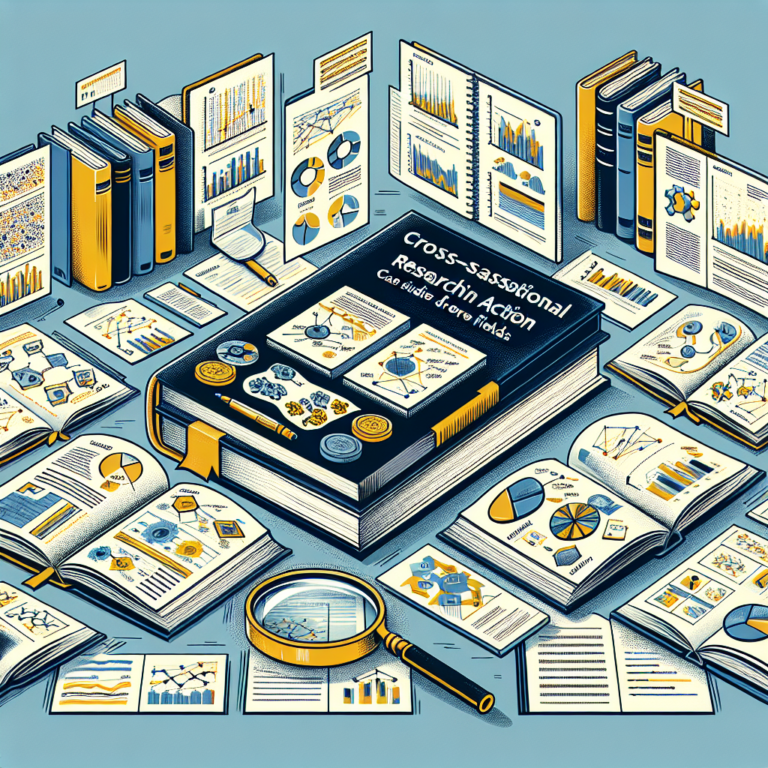
Introduction
In the world of research, clarity is not just a luxury; it’s a necessity. The murky waters of ambiguous terminology can drown even the most groundbreaking studies. If you’ve ever wondered why your research isn’t achieving the impact you envisioned, consider this: Are your operational definitions as precise as they could be? Welcome to The Power of Precision: Crafting Effective Operational Definitions in Your Research. This article explores how the careful formulation of operational definitions can elevate your research, making it not only clearer but also more compelling and credible.
Imagine standing on a bridge, peering down at a swirling river of information. Without proper navigation—solid definitions and clear parameters—you can easily lose your way. By the end of this article, you’ll not only understand the significance of operational definitions but also learn how to craft them effectively to enhance your research outcomes.
Why Operational Definitions Matter
Defining the Indefinable
Operational definitions specify how variables are measured and identified in your study. They can distinguish between disparate constructs and help bridge the gap between theoretical concepts and measurable variables. Yet, many researchers overlook this fundamental aspect, leading to confusion and misinterpretation.
The Case of Depression Measurement
Consider a study that investigates the effectiveness of a new antidepressant. If "depression" isn’t precisely defined, it could mean different things to different researchers. Does it refer to clinical depression, self-reported feelings of sadness, or something else entirely? Without a precise operational definition, the research findings could be misinterpreted, undermining the validity of the entire study.
Enhancing Credibility and Replicability
Research that uses well-crafted operational definitions can be replicated more easily and is generally seen as more credible. This is essential for building upon previous studies and creating a solid foundation for further research.
Example: Replicating Consumer Behavior Studies
In consumer behavior research, studying the impact of advertising is common. If "consumer engagement" is defined inconsistently across studies, how can one compare outcomes effectively? A clear definition—be it through metrics like click-through rates or time spent on a site—allows for consistent replication and builds a larger body of credible findings.
Crafting Effective Operational Definitions
Step 1: Understand the Concept
Before you can define a variable, you need a deep understanding of it. Consider its nuances and the implications of various definitions.
Example: Emotional Intelligence
When defining emotional intelligence, researchers must distinguish between its components: self-awareness, self-regulation, motivation, empathy, and social skills. Each component requires specific measurements, making the definition multifaceted.
Step 2: Choose Measurable Indicators
Once you understand the concept, select indicators that can be measured objectively. This not only strengthens your definition but also ensures consistency.
Table: Indicators for Emotional Intelligence
| Component | Measurement Method | Example Indicators |
|---|---|---|
| Self-awareness | Self-report questionnaires | Ability to assess personal moods |
| Self-regulation | Behavioral assessments | Control over emotional responses |
| Motivation | Performance metrics | Achievement of personal goals |
| Empathy | Peer ratings | Understanding others’ feelings |
| Social skills | Observational studies | Effectiveness in group settings |
Step 3: Document Your Definitions
Your operational definitions should be documented clearly and consistently throughout your study. Not only does this help others understand your research, but it also forces you to clarify your thoughts.
Case Study: The Influence of Social Media on Self-Esteem
In a study investigating social media usage and self-esteem, researchers defined "self-esteem" as "the score obtained from the Rosenberg Self-Esteem Scale," a well-validated instrument. By doing this, they grounded their work in established measurements, making their findings more comprehensible and reliable.
Step 4: Evaluate and Revise
Never underestimate the power of revision. Initial definitions can often benefit from further refinement. Gathering feedback from peers can provide valuable insights.
Example: Feedback Loop in Academic Research
In academic settings, researchers often circulate drafts of their operational definitions among colleagues. Peer feedback can shed light on ambiguous terms or suggest alternative measurement methods that enhance precision.
Practical Applications
Operational Definitions in Different Domains
Healthcare Research: Precision is paramount; well-defined terms can mean the difference between effective treatments and disastrous outcomes. For instance, "compliance" in medication adherence must be defined clearly—such as percentage of doses taken on time.
Education: In educational psychology, defining "academic success" can vary from standardized test scores to classroom participation. Operational definitions help ensure that everyone interprets these constructs uniformly.
Marketing: In a marketing study analyzing consumer loyalty, “loyalty” may be understood through metrics like repeat purchases or customer lifetime value. Accurate definitions help organizations target their strategies effectively.
The Role of Technology
In today’s digital age, technology can assist in crafting operational definitions. Automated tools can help in aggregating and analyzing data to create clear measurements. However, relying too heavily on technology can lead back to ambiguity if researchers don’t understand the metrics themselves.
Chart: Benefits of Technology in Defining Variables
| Technology Tool | Benefit |
|---|---|
| Data Analytics Software | Uncovers trends in operational definitions |
| Survey Platforms | Aggregates data for clarity |
| Coding Tools | Standardizes measurement across studies |
Challenges in Crafting Operational Definitions
Ambiguity in Language
Ambiguity can arise when defining constructs that are subjective or culturally nuanced. Phrases like "stress" or "happiness" can vary widely in interpretation.
Balancing Complexity and Clarity
While thorough definitions are vital, they should not become overly complex. Striking a balance between being comprehensive and understandable is crucial.
Real-World Limitations
While the ideal is a perfectly crafted operational definition, external factors (like time and resources) may limit researchers. However, striving for the best possible definition can significantly enhance research quality.
Conclusion
In the quest for knowledge, The Power of Precision: Crafting Effective Operational Definitions in Your Research stands as a guiding light. Precision allows researchers to navigate through complex landscapes, yielding insights that are credible, replicable, and impactful. Adopting clear, concise, and well-structured operational definitions not only benefits your current research but lays a solid foundation for the work of those who follow.
Actionable Insight
Take a moment today to revisit your operational definitions. Whether you’re entering a new study or refining an existing one, ensuring clarity is paramount. As you wrestle with terms, remember: A well-defined term can illuminate your research and enhance your contributions to academia and beyond.
FAQs
1. What is an operational definition?
An operational definition specifies how a concept is measured or identified in research, providing clarity to enhance understanding and replicability.
2. Why are operational definitions necessary?
They eliminate ambiguity, making it easier for researchers to understand and replicate studies, thereby enhancing the overall credibility of the research.
3. Can operational definitions impact research outcomes?
Absolutely! Poorly defined terms can lead to misinterpretation of data, affecting conclusions and potentially invalidating research findings.
4. How do I create an effective operational definition?
Start by deeply understanding the concept, then choose measurable indicators, document your definitions clearly, and revise based on feedback.
5. Are operational definitions the same in all research domains?
No, operational definitions can vary widely across different fields due to differing constructs and metrics. It’s crucial to tailor your definitions to fit the specific context of your research.
By effectively leveraging The Power of Precision: Crafting Effective Operational Definitions in Your Research, you can ensure that your work is rigorous, reliable, and ready to inspire future innovations in your field.














